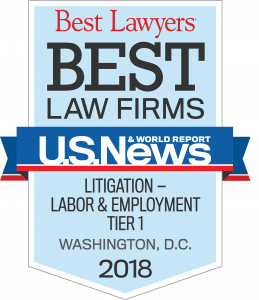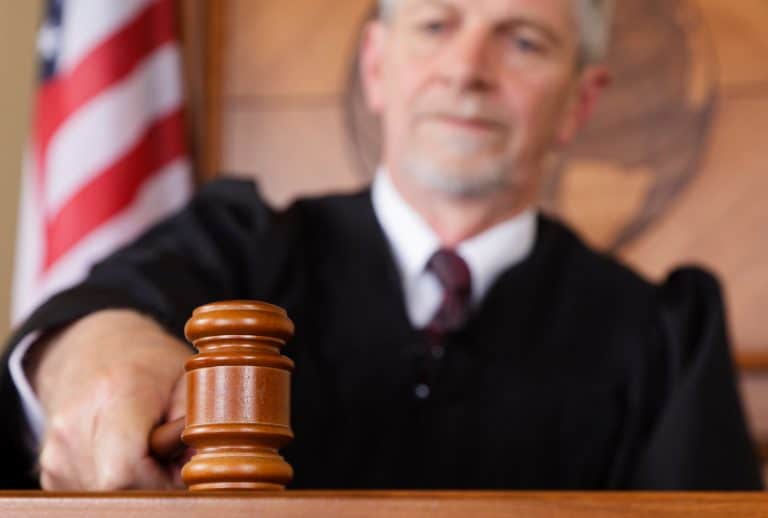Procedural Rules Governing Whistleblower Retaliation Claims Adjudicated at DOL OALJ
The Department of Labor has issued its final rule revising the Rules of Practice and Procedure for Administrative Hearings Before the Office of Administrative Law Judges. The new rules become effective on June 18, 2015 and govern proceedings before the Department of Labor Office of Administrative Law Judges (OALJ), which presides over formal hearings concerning labor-related matters, including whistleblower retaliation claims.
The new rules are the first significant amendments to OALJ procedures since DOL promulgated OALJ procedural rules in 1983. The primary goal of the revised rules is to harmonize OALJ procedures with the Federal Rules of Civil Procedure (FRCP). Although the revised rules will likely increase litigation costs for whistleblowers adjudicating their claims at DOL, the OALJ is generally a more favorable forum than federal court because OALJ procedure is less formal than federal court procedure and allows for more flexible case management. But whistleblowers are increasingly obtaining substantial jury awards in federal court, including a recent six million dollar jury verdict in a Sarbanes-Oxley whistleblower retaliation case. The new rules may give whistleblowers another reason to remove to federal court when their claims are brought under a whistleblower protection statute that includes a kick-out provision.
Key Revisions to DOL OALJ Rules
The following are some key changes in the new OALJ rules:
- Mandatory Initial Disclosures Similar to federal court procedure, § 18.50 now requires the parties to exchange initial disclosures within 21 days after entry of an initial docketing order.
- Using depositions at hearings 18.55 permits unconditional use of deposition testimony at hearings absent an objection, to the extent the testimony would be admissible as if the deponent were present and testifying. In other words, the party offering the deposition testimony need not show that the witness is unavailable to testify at the hearing.
- Physical and Mental Examinations 18.62 now requires 30 day’s notice when a party seeks to take a physical or mental examination, unless the parties agree to a shorter notice period in their discovery plan, by stipulation, or through informal discussion.
While the revised OALJ rules address discovery of electronically stored information, the rules unfortunately contemplate “hardcopy delivery as the default authorized means of filing and allow[] electronic or facsimile filing only as authorized by order or regulation.” The DOL rejected proposals to authorize parties to file documents by email, but ALJs have discretion to permit electronic filing. And the revised rules maintain a 12- page limitation on facsimile filings absent leave from the ALJ. § 18.30(a)(2)(ii)(E) permits the parties to agree to serve each other by email. Hopefully Congress will appropriate funds for the OALJ to implement an electronic case filing system similar to the federal ECF or the Merit Systems Protection Board’s electronic filing system.
The final rule includes the following helpful table cross-referencing the new rules with the old rules and the Federal Rules of Civil Procedure:
| New section | New section title | Old section | Old section title | Federal Rule of Civil Procedure |
| General Provisions | ||||
| 18.10 | Scope and purpose | 18.1/18.26 | Scope of rules and conduct of hearings | Fed. R. Civ. P. 1. |
| 18.11 | Definitions | 18.2 | Definitions | |
| 18.12 | Proceedings before administrative law judge | 18.25/18.29(a) | Proceedings before administrative law judge/authority of the administrative law judge | |
| 18.13 | Settlement judge procedure | 18.9 | Consent order or settlement; settlement judge procedure | |
| 18.14 | Ex parte communication | 18.38 | Ex parte communications | |
| 18.15 | Substitution of administrative law judge | 18.30 | Unavailability of administrative law judge | Fed. R. Civ. P. 63. |
| 18.16 | Disqualification | 18.31 | Disqualification | |
| 18.17 | Legal assistance | 18.35 | Legal assistance | |
| Parties and Representatives | ||||
| 18.20 | Parties to a proceeding | 18.10 | Parties, how designated | |
| 18.21 | Party appearance and participation | 18.39/18.34(a) | 18.39, Waiver of right to appear and failure to participate or to appear—text was incorporated into proposed “participation” rule | |
| 18.22 | Representatives | 18.34 | Representatives | |
| 18.23 | Disqualification of representatives | |||
| 18.24 | Briefs from amicus curiae | 18.12 | Amicus curiae | |
| Service, Format and Timing of Filings and Other Papers | ||||
| 18.30 | Service and filing | 18.3 | Service and filing | Fed. R. Civ. P. 5. |
| 18.31 | Privacy protection for filings and exhibits | Fed. R. Civ. P. 5.2. | ||
| 18.32 | Computing and extending time | 18.4 | Time computations | Fed. R. Civ. P. 6. |
| 18.33 | Motions and other papers | 18.6 | Motions and requests | Fed. R. Civ. P. 7(b) & 43(c). |
| 18.34 | Format of papers filed | |||
| 18.35 | Signing motions and other papers; representations to the judge; sanctions | Fed. R. Civ. P. 11. | ||
| 18.36 | Amendments after referral to the Office of Administrative Law Judges | 18.5 | Responsive pleadings—answer and request for hearings | |
| Prehearing Procedure | ||||
| 18.40 | Notice of hearing | 18.27 | Notice of hearing | |
| 18.41 | Continuances and changes in place of hearing | 18.28 | Continuances | |
| 18.42 | Expedited proceedings | 18.42 | Expedited proceedings | |
| 18.43 | Consolidation; separate hearings | 18.11 | Consolidation of hearings | Fed. R. Civ. P. 42. |
| 18.44 | Prehearing conference | 18.8 | Prehearing conferences | Fed. R. Civ. P. 16. |
| Disclosure and Discovery | ||||
| 18.50 | General provisions governing disclosure and discovery | Fed. R. Civ. P. 26 (a), (d), (f), (g). | ||
| 18.51 | Discovery scope and limits | 18.14 | Scope of discovery | Fed. R. Civ. P. 26 (b). |
| 18.52 | Protective orders | 18.15 | Protective orders | Fed. R. Civ. P. 26 (c). |
| 18.53 | Supplementing disclosures and responses | 18.16 | Supplementation of responses | Fed. R. Civ. P.26 (e). |
| 18.54 | Stipulations about discovery and procedure | 18.17 | Stipulations regarding discovery | Fed. R. Civ. P. 29. |
| 18.55 | Using depositions at hearings | 18.23 | Use of depositions at hearings | Fed. R. Civ. P. 32. |
| 18.56 | Subpoena | 18.24 | Subpoenas | Fed. R. Civ. P. 45. |
| 18.57 | Failure to make disclosures or to cooperate in discovery; sanctions | 18.21 | Motion to compel discovery | Fed. R. Civ. P. 37. |
| Types of Discovery | ||||
| 18.60 | Interrogatories to parties | 18.18 | Written interrogatories to parties/ | Fed. R. Civ. P. 33. |
| 18.61 | Producing documents, electronically stored information, and tangible things, or entering onto land, for inspection and other purposes | 18.19 | Production of documents and other evidence; entry upon land for inspection and other purposes; and physical and mental examination | Fed. R. Civ. P. 34. |
| 18.62 | Physical and mental examinations | 18.19 | Production of documents and other evidence; entry upon land for inspection and other purposes; and physical and mental examination | Fed. R. Civ. P. 35. |
| 18.63 | Requests for admission | 18.20 | Admissions | Fed. R. Civ. P. 36. |
| 18.64 | Depositions by oral examination | 18.22 | Depositions by oral examinations | Fed. R. Civ. P. 30. |
| 18.65 | Depositions by written questions | Fed. R. Civ. P. 31. | ||
| Disposition Without Hearing | ||||
| 18.70 | Motions for dispositive action | |||
| 18.71 | Approval of settlement or consent findings | 18.9 | ||
| 18.72 | Summary decision | 18.40/18.41 | 18.40, Motion for summary decision merged with 18.41, Summary decision | Fed. R. Civ. P. 56. |
| Hearing | ||||
| 18.80 | Prehearing statement | 18.7 | Prehearing statements | |
| 18.81 | Formal hearing | 18.43 | Formal hearings | Fed. R. Civ. P. 43(a). |
| 18.82 | Exhibits | 18.47/18.48 18.49/18.50 | Exhibits/records in other proceedings/designation of parts of documents/authenticity | |
| 18.83 | Stipulations | 18.51 | Stipulations | |
| 18.84 | Official notice | 18.45 | Official notice | |
| 18.85 | Privileged, sensitive, or classified material | 18.46/18.56 | In camera and protective orders/restricted access | |
| 18.86 | Hearing room conduct | 18.37 | Hearing room conduct | |
| 18.87 | Standards of conduct | 18.36 | Standards of conduct | |
| 18.88 | Transcript of proceedings | 18.52 | Record of hearings | |
| Post Hearing | ||||
| 18.90 | Closing the record; subsequent motions | 18.54/18.55 | Closing the record /receipt of documents after hearing | |
| 18.91 | Post-hearing brief | 18.57 | Decision of the administrative law judge and post-hearing briefs | |
| 18.92 | Decision and order | 18.57 | Decision of the administrative law judge and post-hearing briefs | |
| 18.93 | Motion for reconsideration | Fed. R. Civ. P. 59 (e). | ||
| 18.94 | Indicative ruling on a motion for relief that is barred by a pending petition for review | Fed. R. Civ. P. 62.1. | ||
| 18.95 | Review of Decision | 18.58 | Appeals | |
| Deleted Sections | ||||
| Deleted | 18.13 | Discovery methods | ||
| Deleted | 18.32 | Separation of functions | ||
| Deleted | 18.33 | Expedition | ||
| Deleted | 18.53 | Closing of hearings | ||
| Deleted | 18.59 | Certification of official record |
Washington DC Whistleblower Protection Law Firm Representing Whistleblowers Nationwide
 Washington DC whistleblower law firm Zuckerman Law represents whistleblowers nationwide under federal whistleblower protection laws, including the Sarbanes-Oxley whistleblower law. To schedule a free preliminary consultation, click here or call us at 202-262-8959.
Washington DC whistleblower law firm Zuckerman Law represents whistleblowers nationwide under federal whistleblower protection laws, including the Sarbanes-Oxley whistleblower law. To schedule a free preliminary consultation, click here or call us at 202-262-8959.
To learn more about SOX whistleblower protection, download our free guide Sarbanes-Oxley Whistleblower Protection: Robust Protection for Corporate Whistleblowers:









